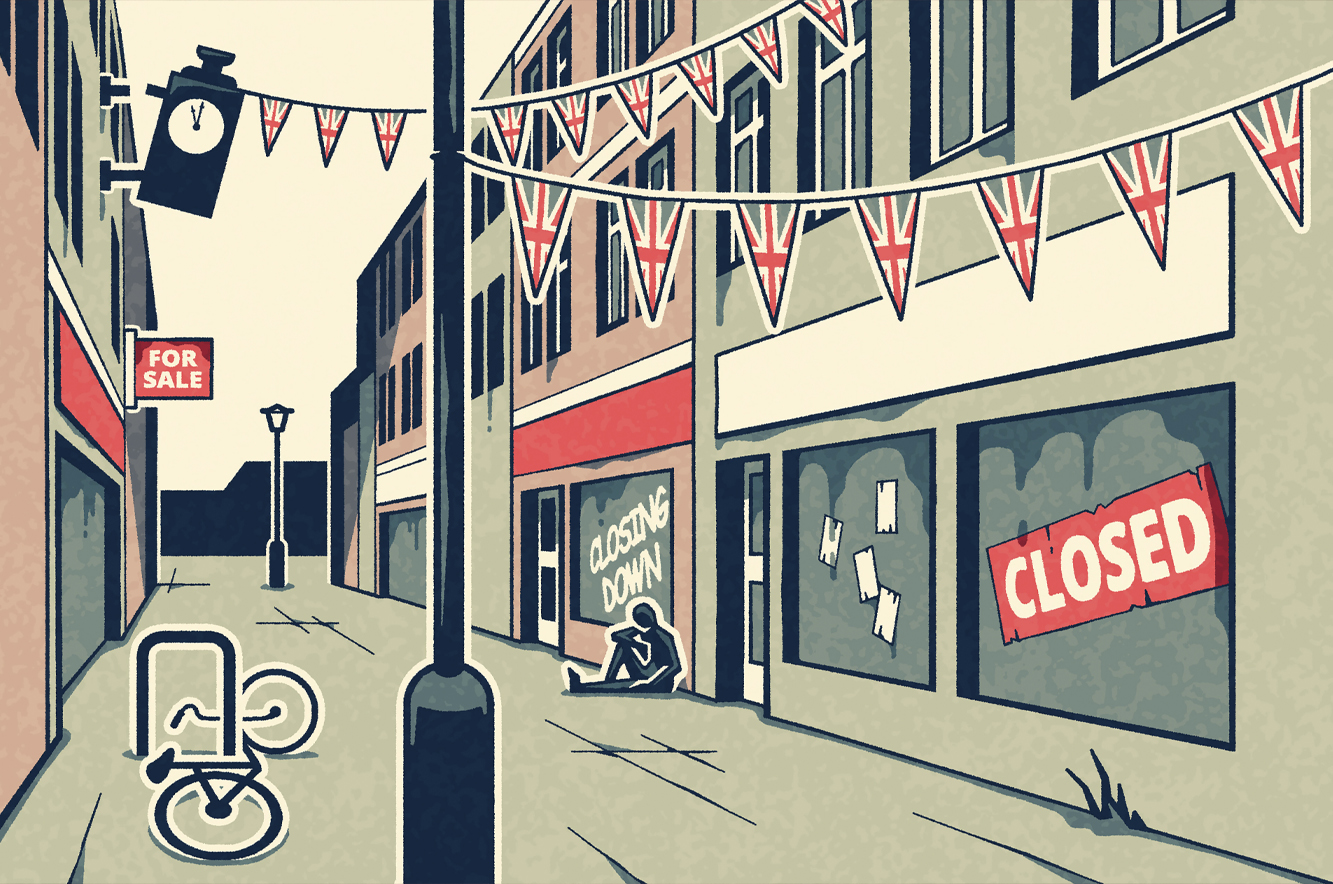By Anoosh Chakelian
Copyright newstatesman

Remember the 2019 general election, when Boris Johnson – briefly – redrew the electoral map? The slogan was to “Get Brexit Done”, tempting voters in historically Labour seats to take a punt on the Conservatives. But there was a second promise, too: to “level up up every part of the country” and to “unite and level up, spreading opportunity across the whole United Kingdom”.
That levelling-up promise has turned into the most significant betrayal in modern political history. It wasn’t long until voters – expecting investment they could see with their own eyes, wherever they lived – were fed more of the same. A Treasury-flavoured gruel of cancelled rail projects, refusal to take the pressure of social care off councils, and reannouncements of the Oxford-Cambridge corridor – bar a few extra wodges of cash for Tory marginals.
Nothing could undermine trust in politicians more than voting for someone to improve where you live and your opportunities there, only for it get worse. That is exactly what happened when the levelling-up agenda died, and Labour is suffering from the hangover – an utter lack of faith in mainstream politicians to change anything.
Earlier this year, the think tank Power to Change found Reform most likely to come second place in the general election in constituencies with the greatest high street decline (as measured by vacancy rates).
Labour knows this. It is the motivating theme behind its “Pride in Place” programme, a new announcement which puts proper funding (£5bn) behind 330 of the UK’s “most overlooked communities”. The idea is to give councils and community groups money to spend to improve their high streets and public spaces.
This comes alongside new rules to make it easier for communities to buy up local assets and save them from closure (like pubs and libraries), and to allow councils to block certain businesses setting up shop, such as bookies, vape shops and barbers seen as fronts for illegitimate business – a talking point of the populist right.
No 10 officials have compared this strategy to the “broken windows theory”, popularised by the New York City police commissioner Bill Bratton in the Nineties, suggesting that fixing little problems such as smashed windows stops criminals being emboldened to commit worse offences.
In a word cloud derived from questions asking what makes Brits proud of their country, the most common answer was “nothing”, but for their local area the predominant answer was “community”, according to More in Common and UCL Policy Lab polling shared exclusively with the New Statesman.
Three in five are proud of their local area – 5 points higher than the equivalent figures for national pride (just 55 per cent of Britons say they are proud to be British). But pride in place is contingent on how well-off you are. Three quarters (77 per cent) of those who describe themselves as “very financially comfortable” are proud of their local area, dropping to just 38 per cent of those who can’t afford the essentials.
People are also more positive about the state of their local area, which they describe as “good”, “peaceful”, and “safe”, than the state of the country, which they describe as “broken”, according to polling for Power to Change also shared with the New Statesman. If the government can mend neighbourhoods, perhaps “broken Britain” will become less of a common refrain.
Keir Starmer’s Labour is often accused of lacking vision, but perhaps it’s fair to say it has a series of micro-visions for neighbourhoods. Vidhya Alakeson, Starmer’s deputy chief of staff, was the founder of Power to Change, which supports community businesses – she is respected by the Prime Minister and has deep knowledge of local initiatives that help their areas flourish. His chief of staff Morgan McSweeney came up through local government, including a stint countering the BNP in Barking with a hyper-local focus on cleaning up once-proud council estates where anti-immigrant feeling had been building, for example.
It was perhaps under-reported that Rachel Reeves’s spending review was the first in a long time to focus significantly on neighbourhoods, including pilots in a number of places to create “improvements people can see on their doorstep”, and a local growth fund for projects such as rebuilding Southport Pier.
Labour’s plan differs from Boris Johnson’s. The areas are not chosen using some opaque formula that prioritised marginal constituencies (and drew accusations of pork-barrel politics) – instead, the government is using its own existing rankings, the Index of Multiple Deprivation and Community Needs Index, to decide where to allocate funds.
Labour’s plan is also focused on actual neighbourhoods: in the jargon, “middle layer super output areas”, where 6-8,000 people live. Johnson’s funds were divvied up between much larger areas – Doncaster was one Towns Fund recipient, for example. This led to residential areas not benefiting from – of even noticing – investment channelled into sprucing up the seafront or town centre.
There is also no “begging-bowl” process in these new plans: councils won’t have to compete for funding by making bids to civil servants in Whitehall. The idea is also not for councils to be the sole decision-makers on how the money is spent (which can end up with them using it to backfill shortages in other budgets). Instead, like New Labour’s New Deal for Communities – a ten-year regeneration that invested £50m each in 39 of England’s most deprived neighbourhoods – community groups, residents, and voluntary organisations will shape the scheme.
The Labour peer and chair of the Independent Commission on Neighbourhoods, Hilary Armstrong, who worked on New Deal for Communities and Sure Start as a Labour MP, told me the policy “turns the page on the failed approach taken by levelling up”, with the “recognition that alongside improving town centres, we need to focus increasingly on where people live – the neighbourhoods, estates and villages they call home”.
But the political risk for Labour is promising visible change and then, like Boris Johnson’s Conservatives and so many other governments before them, leaving those windows shattered for all to see.
[Further reading: Is there any hope for the British high street?]



